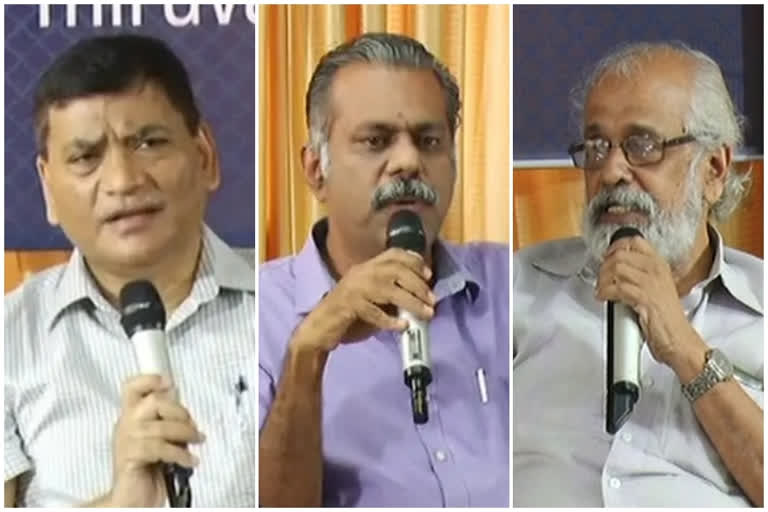Thiruvananthapuram: The Kerala Rail Development Corporation, on behalf of the state government, on Thursday organised a panel discussion here on the proposed SilverLine semi high-speed rail corridor, providing a platform for expressing different views on the multi-crore project, even as its attempt to lay survey stones triggered an intense protest at Muzhappilangad in Kannur district.
The discussion, with three panelists supporting the Left government’s ambitious project and one expert opposing its implementation, was carried out at a hotel in the state capital amidst widespread criticism that the authorities were not lending an ear to the woes of common people and the views of the critics.
Kuncheria P Isaac, the former vice-chancellor of the Kerala Technical University, kick-started the debate strongly supporting the semi-high speed rail corridor saying better transportation facilities including faster trains and expressways were the necessity of the southern state. He noted that most people chose to travel during odd hours by road to beat the traffic, which was one of the reasons for increasing road mishaps in the state.
Though the Rs 64,000 crore-worth SilverLine may not be financially viable immediately, this is something that could become a “boost to the economy of the state” over a period of time.
If we could construct the Idukki dam and still it stands, we can do this as well, the expert added. Echoing similar views, S N Raghuchandran Nair, president of the Trivandrum Chamber of Commerce, said it was high time the state changed its mindset about the development of public transportation systems.
“Now, we are forced to spend our precious time on the road. Fuel price is also pretty high. Projects like the Silver Line should be implemented to find solutions to the traffic issues facing the state,” he said. Such projects would help attract more business ventures into the state and rejuvenate the tourism sector, Nair added.
However, he pointed out that it was inappropriate to plant survey stones as part of the social impact study of the project without people’s consent. All concerns and doubts of the public should be addressed and cleared before its implementation, Nair added. Subodh Jain, a retired Member-Engineering, who also spoke in favour of the project, stated that it was not feasible to implement the proposed project in the broad gauge format.
Observing that something has to be done with regard to Kerala’s transport needs, he said one thing is very encouraging everybody agrees that doing nothing is not an option. The primary objective of the project should be to wean people away from the personal private mode of transportation such as cars, he added.
However, R V G Menon, a prominent environmental scientist and an arch critic of the SilverLine, expressed strong reservations about the multi-crore project saying doubling of the existing rail tracks and modernization of the signaling system was the best possible alternative. While looking from the people’s perspective, the proposed SilverLine has several issues, he said.
